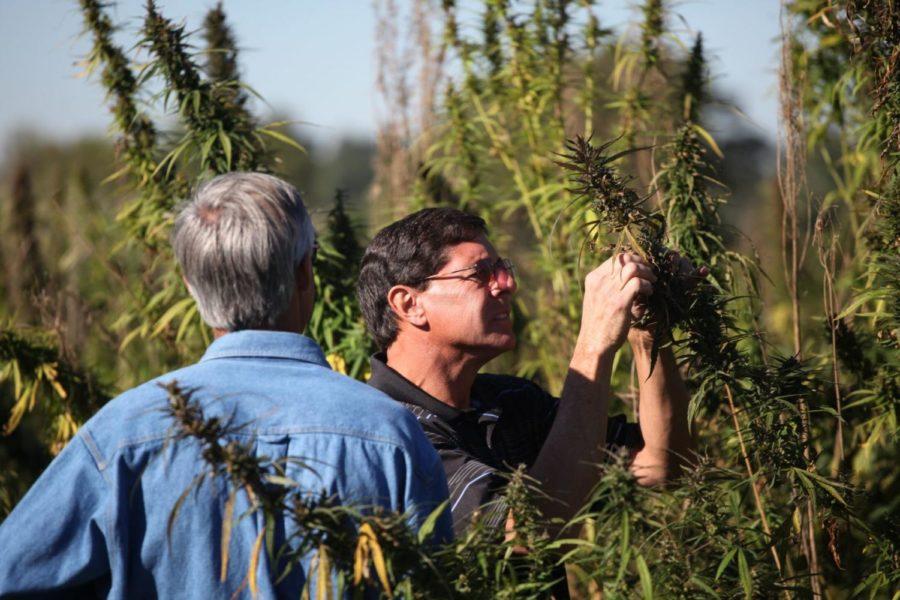Hemp is the smart choice economically and environmentally for Ky. farmers
Bill Polyniak, left, and Dave Hendrick, right, look at the hemp plant at the University of Kentucky hemp harvest at Spindletop Research Farm in Lexington, Ky., on Tuesday, September 23, 2014. Polyniak and Hendrick work in CBD research. File Photo
September 18, 2019
There is a hemp renaissance going on right under our noses. Interest in the plant has never exactly gone away, but its legitimacy has been mounting alongside support from a wide variety of industries. Kentucky is no stranger to the plant; in fact, it was the greatest producer of hemp in the United States for about 200 years, having produced three quarters of the countries supply from the 1770s to the 1970s. The history of hemp in this country is directly tied to the history of this state, and there is a big reason for farmers throughout the Commonwealth to be excited for this rebirth of the industry that supported Kentucky for centuries.
With the 2018 federal farm bill removing industrial hemp and it’s extracts from the controlled substance list, the door has been opened in many ways for a new generation of farmers to reap the benefits of this once extremely lucrative cash crop.
Both versatile and durable, hemp, which is the male variety of the marijuana plant, has a major market behind it. It can be used for everything from nutrition, to textiles, to plastic replacement and even fuel. Many have recently found success in using the plant’s oils as a treatment for seizures.
This variety of uses has sadly been overlooked or forgotten by many due to the strong campaign against marijuana which occurred in the 1950s, but recently the tides have been turning. Several prominent political figures have raised the question of national marijuana legalization in the past election cycle and several states have already taken it upon themselves to legalize the plant which was once heavily demonized. Although the production of hemp and the production of marijuana are two distinct endeavors, in the past it has been common for opinions regarding one to directly affect the public’s opinion of the other. With support starting to come even from mainstream politicians, now seems to be the perfect time to consider investing in hemp.
Although the number of end products that can be made by the crop are impressive, the benefits of hemp don’t stop with the products that can be created by it; hemp intakes more carbon dioxide per square acre than average crops, and that can be a valuable tool in the fight against climate change. Just as important as the need for sustainable fuel, sustainable crops are an essential part of a green future for this country. Luckily for farmers this means that the smart choice economically may also be the smart choice environmentally.
For those that decide that the time is right to give this crop a chance, a dilemma of choice may be the next task to overcome. There are three varieties of the plant, most often referred to as fiber varieties, grain varieties, and cannabinoid hemp varieties. All three present their own challenges and rewards and between them there are a multitude of industries represented. Cannabinoid hemp is currently the most lucrative of the three but requires strict maintenance of the environment and an understanding of the stress and growing variables. It also can present regulatory challenges depending on the end use products that come from your crop, though the regulations are likely to change in the coming years.
The choice to begin growing Kentucky’s once-darling plant again may seem daunting, and the first step is to re-educate the masses. Ending the spread of misinformation in the agriculture industry in the Commonwealth may be a step in recapturing and renewing the success of the former hemp-growing generations.






























































































































































